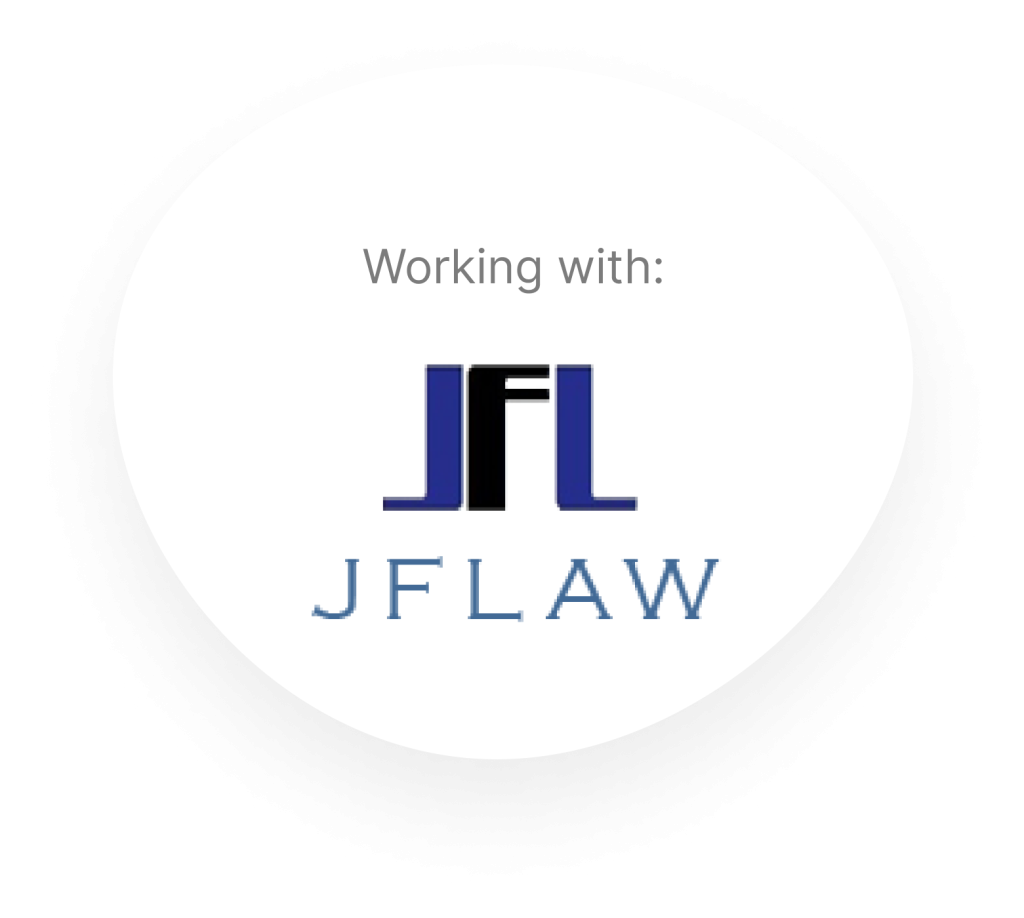Personal Injury Claims
No-win, No-fee claims
If you’ve been injured in an accident that occurred because someone who had a duty of care towards you breached this duty, you may be able to claim compensation for your suffering.
Excellent Reviews On

Claiming For Tinnitus Compensation
100% No Win No Fee
You may be able to claim compensation for tinnitus if you have developed the condition due to exposure to excessive noise or someone’s failure to protect you from excessive noise. It’s also possible to develop tinnitus following a head injury in the likes of a car accident. You can also claim if you already had tinnitus and it has been aggravated and made worse by a third party.
At best, tinnitus is very annoying; at worst, it can be incredibly debilitating and impact all daily activities. It can affect someone’s ability to work and interact with others and their family life and cause sleep loss.
This guide explains the process for starting a successful claim, including compensation and possible payouts.
Excellent Reviews On
As featured in:





What Is Tinnitus?
Tinnitus is hearing noises that don’t come from an external source. Commonly, these include whistling, constant ringing, hissing, buzzing, humming, and even music and singing. The noise can be heard in one ear or both ears.
Tinnitus is often accompanied by hearing damage or some degree of hearing loss and affects around 10% of UK adults.
Why use us?
Free Consultation
We offer a free consultation to anyone looking to make a claim
No win, no fee
Claim experts
We use solicitors who have handled thousands of claims

What Causes Tinnitus?
Tinnitus is linked to certain medical conditions, such as Meniere’s disease, thyroid problems, diabetes, and multiple sclerosis. However, most cases of tinnitus are caused by exposure to excessive noise over long periods or a sudden burst of excessive noise or a loud sound. It is is usually associated with hearing loss and noise-induced hearing loss.
Tinnitus can be a side effect of some medications used for chemotherapy, non-steroidal anti-inflammatory drugs, antibiotics, and aspirin.
Sometimes, tinnitus can be caused by something as simple as a build-up of ear wax or an ear infection.
Tinnitus can also be caused by traumatic injuries to the head in car accidents or slips and falls.

Tinnitus Compensation Claims
You may be able to make a tinnitus compensation claim if you have been in an environment that failed to protect you against excessive noise.. Tinnitus claims usually go hand in hand with noise-induced hearing loss, and most tinnitus compensation arises from workplace personal injury claims.
You could also claim for tinnitus resulting from the likes of a car accident, so if you notice the symptoms and never had them before, let your doctor and solicitor know.

Can I Claim Compensation For Tinnitus?
A tinnitus claim falls under personal injury law. You can make a claim for tinnitus compensation if it was caused by exposure to loud noise or excessive noise in an environment where a third party owed you a duty of care. You could also claim if, for example, someone ploughed into your car and left you with a head injury.
A duty of care is a legal obligation owed to you by someone else. This might be your employer who has failed to protect you from sudden or prolonged noise in the workplace or a high noise level by providing suitable personal protective equipment, like ear plugs or ear defenders. It could also be a person or company that controls the safety of public spaces, like your local council.
If you want to claim tinnitus compensation, you must show that you developed tinnitus because a third party failed to uphold their duty of care to you. To help you navigate this process, we recommend instructing a personal injury solicitor, such as ourselves, who can take care of your claim.
How Does A Compensation Claim For Tinnitus Work?
Expert solicitors will first assess your case. They need to be able to establish a duty of care between you and the person responsible for you developing tinnitus.
Tinnitus is most commonly associated with exposure to loud noise in the workplace. Your employer has a duty of care to you under the Health and Safety at Work etc Act 1974.
People can also be exposed to excessive noise in public spaces. Public spaces can be controlled by many people who owe a duty of care to the public under the Occupiers’ Liability Act 1957.
Tinnitus can sometimes develop after a car accident because of injuries to the head and neck. Road users owe each other a duty of care under the Road Traffic Act 1988 and the Highway Code.
The claims process requires evidence of how the tinnitus developed. If it developed in the workplace, this will include details of your working conditions, how your employer managed the situation, witness statements from other employees, photos of your working environment, and confirmation of a diagnosis of tinnitus from a medical professional.
Your personal injury solicitor will manage the claim for tinnitus on your behalf. This involves dealing with the other side and any settlement offers they may make. You won’t have to go to court unless the defendant (the person or organisation you claim against) denies liability. Even then, the vast majority of disputed cases are settled before they reach the courtroom.
Personal Injury Claim Calculator
If you’ve had an accident that wasn’t your fault which resulted in an injury, then you might have a claim.
Compensation Bracket: 0.00
How Much Compensation Can I Claim For Tinnitus?
How much compensation you can claim for tinnitus depends on whether your symptoms are mild, moderate, or severe and whether you have noise-induced hearing loss (NIHL) or other symptoms like headaches and dizziness.
Compensation for tinnitus is based on the figures in the Judicial College Guidelines (JCG), a tool used by lawyers and courts to assess general damages in personal injury claims.
At the highest end, those with total deafness can receive an award between £110,750 and £133,810. Loss of hearing in one ear accompanied by headaches, tinnitus, and dizziness attracts payouts of £38,210 to £55,570. Severe tinnitus and NIHL, together or individually, are listed with payments of between £36,260 and £55,570.
What Are Special Damages?
In addition to a payout based on your symptoms and level of NIHL (called general damages), you can also claim special damages. This includes travel expenses—you may need to take public transport or a taxi because you can’t drive due to impaired balance and dizziness.
Special damages also include compensation for medical costs such as private treatment, prescription charges, the cost of hearing aids, and any financial losses if you are unable to work.
Keep receipts of everything so that you can prove the financial expense.
How No Win No Fee Solicitors Co Can Help You Claim Compensation for Tinnitus
If you want to make a tinnitus compensation claim, working with expert solicitors is essential. Here at No Win No Fee Solicitors Co, our team is experienced in tinnitus cases. They know how to claim compensation and get the best payout on every tinnitus claim.
As our name suggests, we operate on a No Win No Fee basis. This means you don’t pay anything to start a tinnitus claim. If you don’t end up with any compensation for tinnitus, you won’t pay us any fees – so there is absolutely no personal financial risk to you.
You’ll only pay us a fee if you are awarded compensation, and the cost is a small percentage of the award. This way, you and everyone else get access to quality legal services with no risk of a large bill for professional fees. Everyone can claim, so no one is excluded because they don’t have the money to do so upfront.
If you’d like to check if you can make a personal injury claim for tinnitus, call us at the number above, write to us here, or message us now via our live chat box. We’re always happy to help.
Frequently Asked Questions
Below we’ll answer common questions regarding tinnitus claims.
Can I claim compensation for tinnitus if my symptoms are not consistent?
Some people suffer noise or ringing in the ears on a continuous basis but you can still claim tinnitus if your symptoms are intermittent. You must have a formal diagnosis of tinnitus and it has been caused by an accident or environment where a third party owed you a duty of care.
Is there a time limit to claim tinnitus compensation?
There is a time limit to claim, and this is three years from the date the injury occurred and the tinnitus started. If you were involved in a road traffic accident, then it’s easy to identify that point in time. However, if you were exposed to loud noise in the workplace over months or years and only had slight tinnitus to start with, it can be harder to establish a precise point in time. Time limits don’t apply to those aged under 18 (called minors). Time starts to run when they reach their eighteenth birthday.
What is whiplash tinnitus?
If the driver or passenger’s head collides with the airbag in a road traffic accident, the impact can lead to whiplash tinnitus. Whiplash tinnitus can be caused by injury to the part of the brain that controls hearing, vascular or nerve damage, or post-accident stress.
Should I use a solicitor to make a compensation claim for tinnitus?
Personal injury claims are complicated, and tinnitus cases can be especially so as the initial symptoms may be gradual in onset, and it’s not always clear what the cause is. Personal injury solicitors can manage all the difficulties for you so you can avoid the stress and anxiety often associated with a claim and concentrate on recovery. You don’t even have to worry about legal costs as, on a no win no fee basis, there is no financial risk to you, and you need pay nothing unless you are awarded compensation.
Is there a cure for tinnitus?
Tinnitus is not usually reversible, but it depends on what causes it. Tinnitus support groups offer counselling to help sufferers learn how to live with it. CBT, or Cognitive Behavioural Therapy, can help manage tinnitus and lower anxiety. Tinnitus retraining therapy designed to retrain the brain so it is less aware of internal noises, is also available. Hearing aids are often prescribed for those with hearing loss.
What makes tinnitus worse?
Like many common health conditions, certain things can make tinnitus worse. Stress can increase the noise levels and so can a build up of ear wax and seasonal allergies which cause inflammation in the passageways in the face and head.



